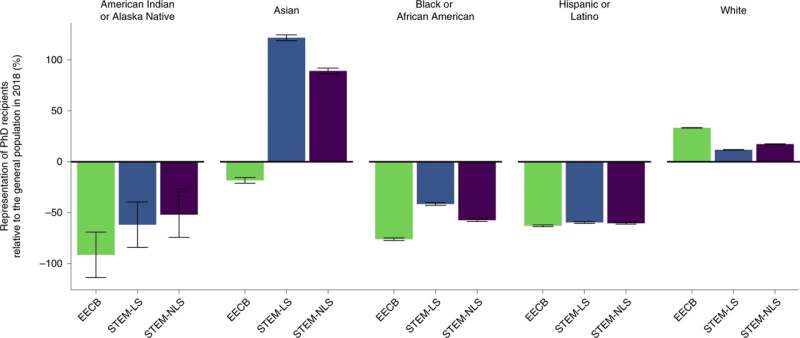Fostering anti-racism in ecology, evolution and conservation biology

Academic departments in ecology, evolution, and conservation biology are increasingly aware of the need to address longstanding barriers and challenges faced by Black, Indigenous, and People of Color (BIPOC) in these disciplines. A diverse group of faculty, staff, and students in the Department of Ecology and Evolutionary Biology (EEB) at UC Santa Cruz has now compiled a set of tools and strategies which departments can use to address shortcomings in equity and inclusion.
Published August 9 in Nature Ecology & Evolution, the recommendations are based on a review of the literature in an effort to identify evidence-based interventions for fostering anti-racism in the classroom, within research labs, and department-wide.
"There's nothing novel in our recommendations. These are empirically-based approaches developed by people who study these issues, and we've put them all in one place and tailored them for the disciplines of ecology, evolution, and conservation biology," said first author Melissa Cronin, a Ph.D. candidate in ecology and evolutionary biology at UCSC.
Cronin said she and senior author Erika Zavaleta, professor of ecology and evolutionary biology, saw a growing need for an easily accessible set of resources to help departments wanting to address historic and current inequities in their fields.
"There is greater awareness now, and a lot more departments are thinking about how to address these issues, so we thought this would be a helpful contribution," Cronin said. "This paper is not a perfect response to the systemic racism we see in scientific life today, but we hope it is a useful tool for those scientists and departments looking to take action at the local level."
The paper addresses the problematic histories of racist policies and ideas in the fields of ecology, evolution, and conservation biology, such as the use of pseudoscientific interpretations of evolutionary biology to advance eugenics and racist ideologies. These historic legacies have contributed to racial gaps by discouraging BIPOC participation in those fields.
Cronin noted that, while people of color are underrepresented in science generally, the gaps are even greater in ecology, evolution, and conservation biology. "Underrepresented groups are even more underrepresented in these disciplines than in other areas of science, so these disciplines are a high priority," she said.
Cronin and Zavaleta recruited a diverse group of students, faculty, and staff within their department to work on the paper, which has 26 coauthors.
"It was a really positive and constructive experience for our department to work together on this paper," Cronin said. "And we built on this incredibly rich tradition of scholarship at UC Santa Cruz in critical race studies, a field which historically has not always intersected with the STEM fields."
No comments:
Post a Comment